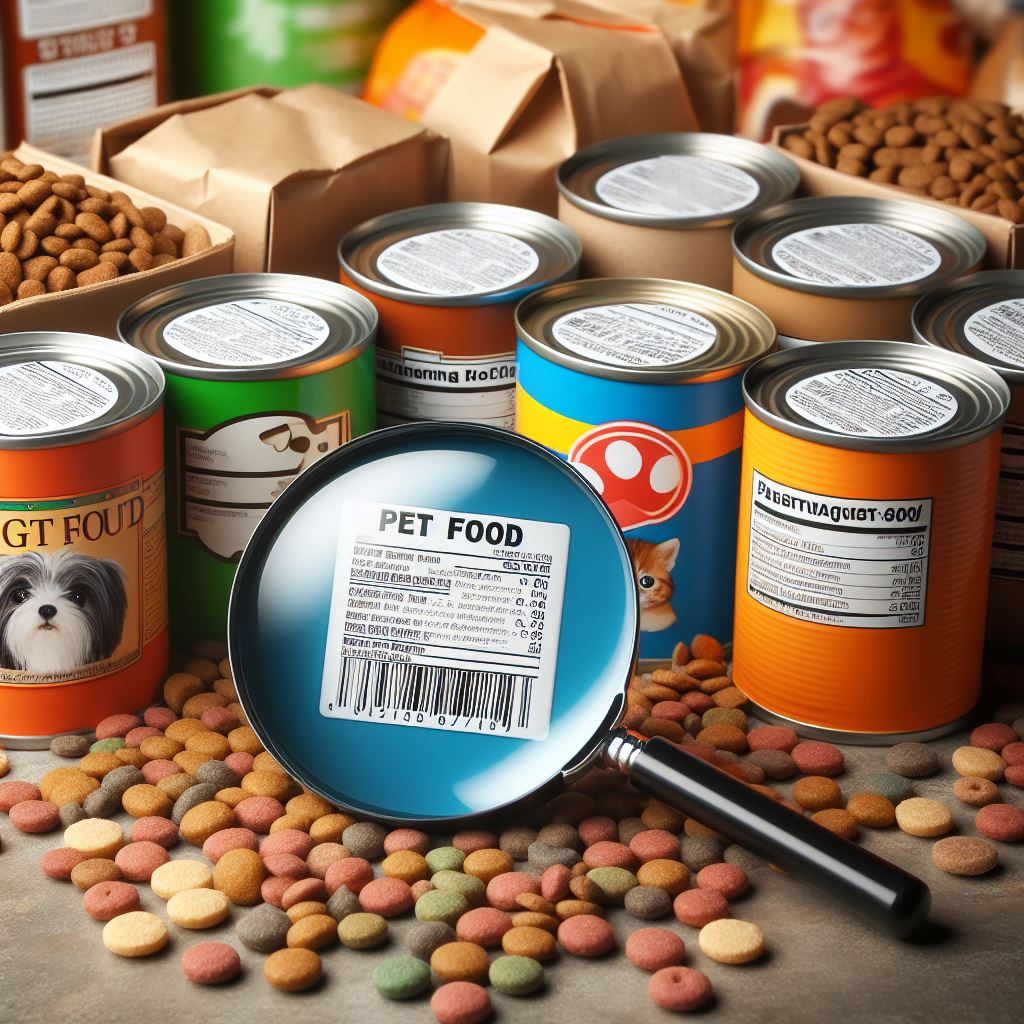
Nourishing Your Pet: A Comprehensive Guide to Pet Nutrition
Share
Welcome to our comprehensive guide on pet nutrition! As pet owners, we all want to ensure our pets lead healthy, vibrant lives. Central to achieving this goal is understanding the critical role that nutrition plays in their well-being. In this blog, we'll dive deep into the unknowns of pet nutrition, exploring topics such as the importance of a balanced diet, deciphering pet food labels, meeting dietary requirements for different life stages, and addressing common nutritional concerns. Let's explore this journey to provide you with the knowledge to nourish your pets for optimal health and vitality!
The Significance of Proper Nutrition for Pets:

Proper nutrition is the cornerstone of your pet's overall health and longevity. Much like humans, pets require a balanced diet to thrive. A well-rounded diet provides essential nutrients such as proteins, carbohydrates, fats, vitamins, and minerals, all of which are crucial for maintaining bodily functions, supporting growth and development, and bolstering the immune system. When pets receive the right nutrition, they are more likely to have healthy skin and coat, strong muscles and bones, robust organ function, and a healthy weight.
However, the importance of proper nutrition extends beyond physical health; it also influences your pet's mental well-being. A nutritious diet can enhance cognitive function, improve mood, and contribute to a higher quality of life. Conversely, poor nutrition can lead to a host of health problems, including obesity, nutrient deficiencies, digestive issues, and even behavioral problems.
Deciphering Pet Food Labels:
One of the first steps in providing your pet with optimal nutrition is deciphering pet food labels. Understanding what goes into your pet's food is crucial for making informed decisions about their diet. When examining pet food labels, pay attention to the ingredients list and nutritional information.
Ingredients are listed in descending order by weight, so prioritize diets with high-quality proteins, such as chicken, beef, or fish, as the first ingredients. Look for whole foods and avoid products with excessive fillers, artificial additives, and by-products. While grains can be a valuable source of carbohydrates for some pets, others may thrive on grain-free options. Ultimately, the best diet for your pet will depend on their individual needs, preferences, and any underlying health conditions.
Understanding Dietary Requirements for Different Life Stages:

Just like humans, pets have unique nutritional needs that evolve throughout their lives. From puppies and kittens to adults and seniors, each life stage requires a tailored approach to nutrition.
Puppies and kittens, for example, undergo rapid growth and development during their first year of life. To support their growing bodies, they need diets that are rich in high-quality proteins, essential fatty acids, vitamins, and minerals. Look for puppy and kitten formulas specifically formulated to meet their unique nutritional requirements.
As pets transition into adulthood, their dietary needs may change. Adult dogs and cats generally require a balanced diet that provides adequate nutrition to maintain optimal health and energy levels. Consider factors such as your pet's breed, size, activity level, and reproductive status when selecting their diet.
Senior pets, on the other hand, may benefit from diets tailored to their age-related needs. As pets age, they may experience changes in metabolism, digestion, and mobility. Senior diets often contain ingredients that support joint health, promote cognitive function, and maintain lean muscle mass. Additionally, older pets may require fewer calories to prevent weight gain and obesity.
Consult with your veterinarian to determine the most appropriate diet for your pet's life stage and individual needs. Regular veterinary check-ups can help monitor your pet's health and make adjustments to their diet as needed.
Addressing Common Nutritional Concerns:
Despite our best efforts, pets may still encounter nutritional concerns that require attention and intervention. Some of the most common nutritional issues in pets include obesity, food allergies, nutrient deficiencies, and dental problems. By staying vigilant and proactive, you can address these concerns and ensure your pet's continued health and well-being.
Obesity is a prevalent issue among pets, affecting millions of cats and dogs worldwide. Excess weight can lead to a myriad of health problems, including diabetes, arthritis, cardiovascular disease, and reduced lifespan. To prevent obesity, monitor your pet's weight and body condition regularly, and adjust their diet and exercise routine as needed. Choose diets that are appropriately portioned and provide balanced nutrition without excess calories.
Food allergies and intolerances are another common concern for pet owners. Pets may develop allergies or sensitivities to certain ingredients, such as grains, meats, dairy, or artificial additives. Symptoms of food allergies can include itching, skin rashes, gastrointestinal upset, and ear infections. If you suspect your pet has a food allergy, consult with your veterinarian to determine the underlying cause and identify suitable dietary options.
Nutrient deficiencies can occur when pets are fed diets that lack essential vitamins, minerals, or other nutrients. Common nutrient deficiencies in pets include omega-3 fatty acids, vitamins A and D, calcium, and taurine. To prevent nutrient deficiencies, feed your pet a balanced diet that meets their nutritional requirements and consider supplementing their diet with appropriate vitamins or minerals if necessary.
Dental health is another crucial aspect of pet nutrition that often gets overlooked.

Dental problems, such as periodontal disease, tooth decay, and gingivitis, can cause pain, discomfort, and systemic health issues in pets. To promote good dental hygiene, provide your pet with dental chews, toys, and regular teeth brushing. Additionally, choose diets that support dental health, such as kibble formulations designed to reduce plaque and tartar buildup.
Proper nutrition is paramount to your pet's health and well-being. By understanding the importance of a balanced diet, deciphering pet food labels, meeting dietary requirements for different life stages, and addressing common nutritional concerns, you can provide your pet with the best possible care. Remember to consult with your veterinarian for personalized dietary recommendations and guidance tailored to your pet's individual needs. With the right nutrition and proactive healthcare, you can ensure that your pet enjoys a long, happy, and healthy life by your side.